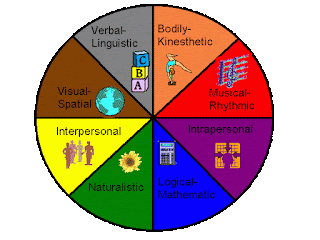Testing for Intelligence
Testing for Intelligence
First, I would like to ask the question why it is so
important to find an effective way to measure children’s minds and abilities?
Who wants to know, and why? What will the information be used for? Based on
what Berger said in her book, that “learning to speak, read, and write the
school language is pivotal for academic achievement, the foundation of all
primary school education. Children differ widely in how well they use the
school language. Some differences may be innate. However, most of the language
gap between one child and another is the result of the social context,
specifically of two factors: family income and adult expectations. Decades of
research throughout the world have found a strong correlation between academic
achievement and socioeconomic status” (Berger, 2012) . I mean can you honestly and fairly
test for intelligence when there are factors involved, and given the opportunity,
what if the variable of the environment that the child is in changes towards
achievement, are the test still considered “effective?’ I mean if” the brain is
still developing then is a test for intelligence only a snapshot, a static
view?” ((Berger, 2012) . This is why I believe that humans have
multiple intelligence not just one. I believe the child should be measured or
assessed with multiple intelligence in mind, and their own style of learning. I
believe that the child’s emotional intelligence should be measured and
assessed, because we should look at the whole child.
Physical activity assessed by accelerometry in rural
Africa: “Physical activity (PA) in children/adolescents of both genders from a
rural community in Mozambique was estimated by accelerometry and by questionnaire and
was compared with PA of Portuguese youth. Total PA, moderate (MPA), vigorous
(VPA) and very vigorous (VVPA) were evaluated. Mozambican boys were more active
than girls. Intensity of PA declined significantly with age. Survival
activities, such as household tasks, were the predominant mode of PA. Compared
with Portuguese children/adolescents, Mozambicans had significantly higher
total PA; showed less decline of PA with age and engaged in fewer minutes at
higher intensity PA. Environmental factors likely explain documented
differences.” (Prista, 2009)
“Young children are difficult subjects to assess accurately because of their activity level and distractibility, shorter attention span, wariness of strangers, and inconsistent performance in unfamiliar environments. Other factors that may affect a child's performance include cultural differences and language barriers, parents not having books to read to their child and a child's lack of interaction with other children. Consequently, assessment of infants, toddlers, and young children requires sensitivity to the child's background, and knowledge of testing limitations and procedures with young children.” ( (McCauley)
References
Berger, K. S. (2012). Understanding How and Why /
Prenatal Growth. In K. S. Berger, The Developing Person Through Childhood
(pp. 3-21). New York: Worth Publishers.
McCauley, L. (n.d.). The Developmental Assessment
of Young Children. Retrieved from www.priory.com/psych/assessyoung.htmShare
Prista, A. (2009). Physical activity assessed by
accelerometry in rural Africa. Retrieved from
ukpmc.ac.uk/abstract/MED/20128359

Hi Larry,
ReplyDeleteGreat post! It really made me think. I would have to wonder also why testing is so important.
Larry,
ReplyDeleteI wholeheartedly agree with you on the idea of multiple intelligences. I too believe that each has their own style of learning and own way of displaying their knowledge. Current testing systems don't work for everyone and fail to capture development in areas such as social emotional development which I believe to be an essential part of development to be able to function successfully in society with others. Being academically intelligent alone is not enough although this alone is what children are being evaluated on these days.
Hi Larry,
ReplyDeleteSo far we have been in 2 classes together! I enjoyed reading your blog! I wish you luck in everything that you do.